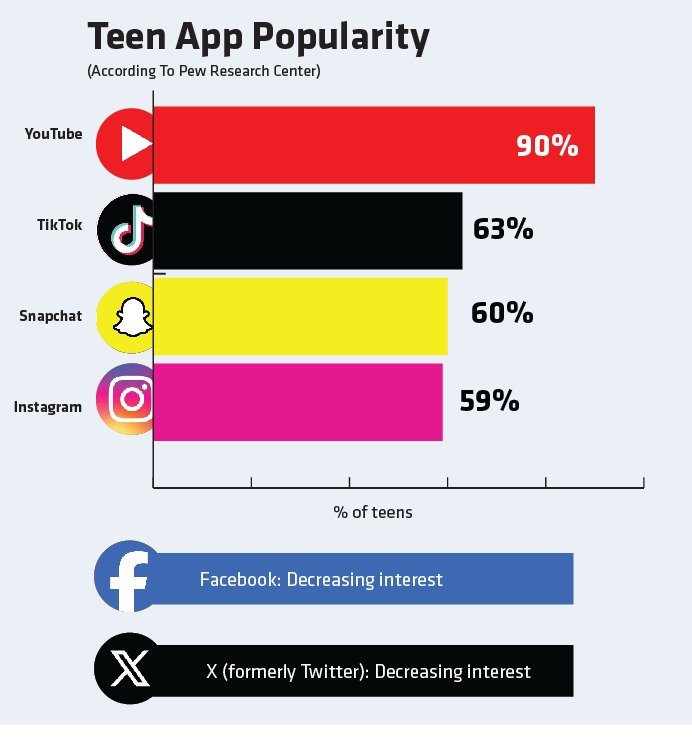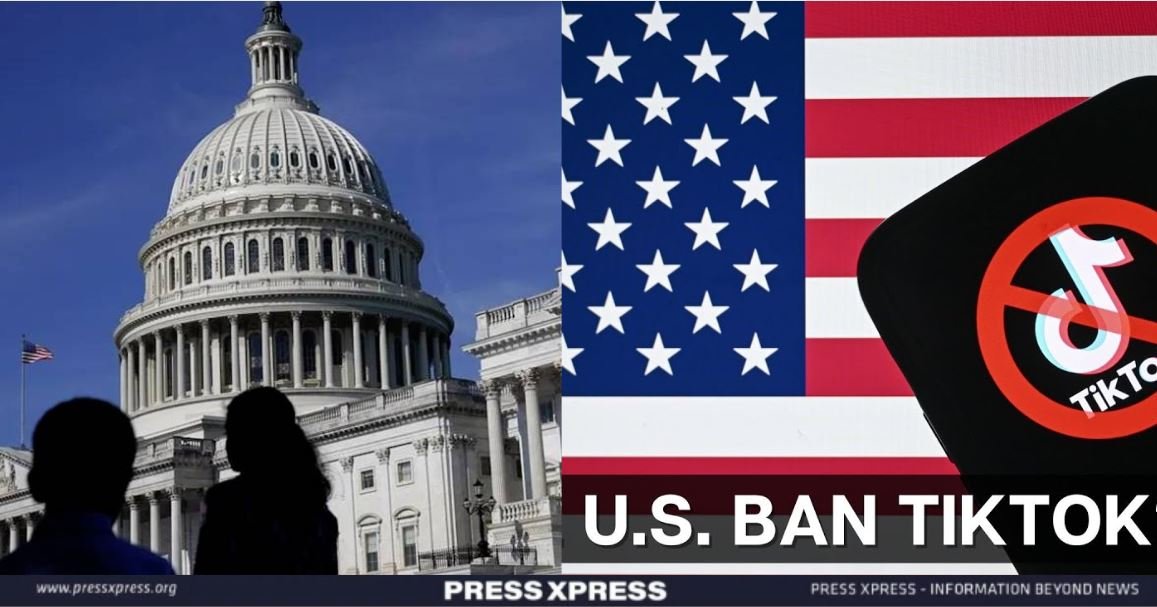Despite strong lobbying efforts and potential legal challenges from TikTok, the bill signals a significant shift in the regulation of social media platforms with foreign ownership
US House passes legislation to ban TikTok within a year if ByteDance doesn’t sell stake. Senate expected to consider bill soon. The legislation was included in a broader foreign aid package and passed by a 360-58 vote. President Biden vows to sign. ByteDance likely to challenge in court. TikTok argues against, citing First Amendment.
Even if it becomes law, ByteDance would likely challenge it in court, arguing it violates users’ First Amendment rights. TikTok has lobbied heavily against the bill, urging its 170 million U.S. users to oppose it. Lawmakers from both parties have raised national security concerns that China could force ByteDance to hand over user data or influence content. TikTok denies these claims. The U.S. government has not provided evidence of data sharing or algorithm manipulation.
You can also read: Japan Turns To AI and Robots To Tackle Rising Labour Crisis
Previous legal challenges by TikTok against bans have had some success. Organizations like the ACLU back the app, arguing a ban infringes on free speech. TikTok has spent $5 million on ads opposing the bill. Content creators worry about losing income if TikTok is banned. The bill reflects widespread congressional concerns about Chinese threats to the U.S.
Earlier, in March, the House of Representatives voted decisively in favor of a bill that would compel the Chinese parent company ByteDance to divest itself of TikTok’s operations within the United States. Subsequently, the bill proceeded to the Senate, where its prospects remained unclear.
The Key Aspects Of The TikTok Bill
It would deliver a severe blow to the immensely popular app, which has up to 170 million American users. The legislation would compel ByteDance, TikTok’s parent company, to divest its U.S. operations within months after the bill becomes law, otherwise, TikTok would face a nationwide prohibition.
In a statement provided via email on Saturday (April 20, 2024), TikTok expressed dismay, stating “It is regrettable that the House of Representatives is utilizing the cover of crucial foreign aid and humanitarian assistance to forcibly advance a ban bill that would violate the free speech rights of 170 million Americans, devastate 7 million businesses, and shut down a platform that contributes $24 billion annually to the U.S. economy.”
Biden’s Stance on TikTok Ban
Regarding a potential TikTok ban, President Biden’s stance is that he supports compelling a forced sale of TikTok, but ‘has not called for a ban’ on the app itself, according to his chief science advisor’s statement at the Semafor World Economy Summit. Even if Biden signs the bill into law, it will likely face a barrage of legal challenges from TikTok and its supporters.
TikTok has asserted that it will exhaust all available legal avenues before considering a divestiture from its parent company ByteDance. The popular app has successfully fought back against similar measures aimed at restricting its operations through the court system in the past.
Who Opposes the TikTok Ban?
Free speech advocates and civil liberties groups have voiced strong opposition to the proposed ban on TikTok. They argue that prohibiting the app violates Americans’ First Amendment rights to access information and media from abroad. Nadine Farid Johnson of the Knight First Amendment Institute stated the ban infringes on free speech with no real benefits, as adversaries could still purchase data and spread disinformation through other platforms.
The Information Technology and Innovation Foundation (ITIF) has also criticized the TikTok ban as simply a bad policy that will not stop China’s techno-nationalist agenda.

The potential ban also faces pushback from TikTok’s millions of U.S. users, especially content creators who monetize the platform. Groups like the American Civil Liberties Union (ACLU) and the Electronic Frontier Foundation have scrutinized the bill over digital rights concerns. Opponents argue there are better approaches to address issues around social media companies’ practices without resorting to an outright ban that could violate constitutional protections.
“Banning TikTok, directly or indirectly, would violate the First Amendment because it would stifle free expression and restrict the public’s access to a critical source of information. The government cannot impose this type of total ban unless it is the only way to prevent extremely serious and immediate harm to national security.”
– Ashley Gorski, Senior Staff Attorney, ACLU’s National Security Project

How Might the Implementation of A TikTok Ban Unfold?
If enacted, the legislation would bar platforms such as Apple and Google from disseminating or updating TikTok, while also restricting web hosting services from hosting it.
However, prohibiting the app’s usage may not necessarily deter its dedicated users. In 2020, following India’s ban on TikTok following a diplomatic incident with China, users resorted to various methods to bypass the ban. These methods included utilizing VPNs or altering their device’s location settings to deceive app stores. Another avenue involved ‘side-loading’ – obtaining and installing unauthorized versions of TikTok from the internet – albeit at the risk of potential malware infiltration.
Potential Competitors
According to analysts, YouTube, Facebook, and Instagram would likely see the most benefit from a TikTok ban.
Additionally, Snapchat and Pinterest could attract both users and advertising revenue away from TikTok.
In terms of popularity among teens, YouTube remains the top app, with nine out of ten teens using it, followed by TikTok (63%), Snapchat (60%), and Instagram (59%), as per Pew Research Center.
Teens are showing decreasing interest in Facebook and X (formerly Twitter) compared to a decade ago.

Is TikTok Bans Worldwide?
TikTok is facing scrutiny and restrictions beyond the United States. Nepal and India have outright banned the app, with India’s ban stemming from its ongoing geopolitical tensions with China.
Numerous governments, including Afghanistan, Australia, Belgium, Canada, Denmark, the Netherlands, New Zealand, Taiwan, the United Kingdom, and European Union governance bodies, have prohibited the use of TikTok on government-issued devices. Pakistan and Indonesia have flip-flopped on whether and to what extent to restrict access to the platform.
The European Union, known for its regulatory efforts to rein in the power of Silicon Valley tech giants over alleged overreach, could pose TikTok’s next major challenge. In February, the EU opened a formal investigation into TikTok, focusing on content, advertising, and the app’s potentially addictive impact on minors. The company has already been fined $370 million by the EU for violating privacy regulations.
In conclusion, the passage of legislation in the House to potentially ban TikTok in the U.S. reflects bipartisan concerns over national security and data privacy. Despite strong lobbying efforts and potential legal challenges from TikTok, the bill signals a significant shift in the regulation of social media platforms with foreign ownership. The outcome in the Senate and subsequent legal battles will determine the fate of TikTok’s presence in the U.S.


